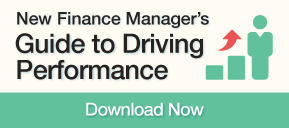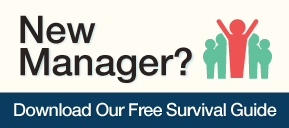[thumbnail]
In Part I of our profile on Raj Kailasanathan, the Director of Finance and Corporate Treasurer at Real Matters, recounted some of his most important early career decisions, explained his views on the value of networking, and offered valuable tips for standing out in a professional setting . This week, we’re taking a more in-depth look at Raj’s insight on mentorship and professional development, the importance of balancing work and home life, and the qualities he seeks when hiring new employees.
Investing in mentorship and professional development
Kailasanathan moved from Sri Lanka to Canada and wholeheartedly pursued a career in accounting in Toronto. He’s worked in a range of accounting/finance positions, from accounts clerk to director of finance. In addition to the typical challenges most accounting and finance professional face, of establishing names for themselves in a highly competitive sphere, Kailasanathan also had to overcome the obstacles that come with being a newcomer. So he can attest to the benefits of working hard and smart.
On top of networking proactively, maintaining a positive attitude, and managing a strong professional image, Kailasanathan suggests accountants and other finance professionals should take advantage of mentorship opportunities. Having an experienced coach or mentor in your corner is a great way to accelerate your career. “You learn more by sitting with someone who has done more than you,” he reasons. “Seek out others in your own area of interest or discipline and learn from them.”
Kailasanathan has always taken a proactive approach to seeking mentorship: whenever he’s met someone who could potentially give good career advice, Kailasanathan offers to take them out for lunch. That provides an opportunity to pick the brains of someone more successful than himself. “I see it as a dual opportunity for professional development and networking,” he says. “I use it as a starting point to do a deep dive into [particular] areas of interest of mine.”
“You learn more by sitting with someone who has done more than you,” he reasons.
Kailasanathan also insists that other forms of professional development are absolutely worth the investment (time, money, etc.). If you can afford the expense, high quality skills-building courses or sessions are particularly useful; they can pay real dividends down the line.
Balancing work and family
Though he’s clearly highly motivated in his professional endeavors, Kailasanathan also has strong family values, and attributes much of his success to the support his family has extended to him throughout his career. He describes his mother and his wife as the biggest influences in his life: “They kept me honest, and kept me working hard. They were my guides.”
Kailasanathan suggests that having a partner or spouse to share your ideas and concerns with can be valuable for your work life, too. In addition to encouraging and supporting you through the ups and downs of your career, they can offer you “a sounding board.”
In order to manage both your work and family responsibilities, Kailasanathan says communication is key. With so many conflicting obligations, you need to prioritize, and re-prioritize. But you also need to explain that to the people closest to you, so that they are on board, too. For example, when work becomes particularly demanding, Kailasanathan explains to his partner that he will be temporarily consumed by his professional duties. He compensates for those busy spells, however, by taking time off later. “Now that we have kids, I take even more time off,” he explains. “It is all about communicating and making sure that you are in it together.”
“I will look for someone to connect with me in the first two to five minutes,” he explains. “In that time, I know whether or not I can work with them.”
What managers are looking for in a hire
Now that he is himself in a position to bring on new employees, Kailasanathan approaches that task with great seriousness. He maintains how important it is to connect with someone right off the bat, recalling how the interview he had at his current company lasted only twelve minutes. “I will look for someone to connect with me in the first two to five minutes,” he explains. “In that time, I know whether or not I can work with them.”
As a rule, job candidates should come to an interview armed with “great questions about me and about the business.” Kailasanathan also recommends showing up with interesting ideas about how the company might improve its operations or do things differently.
Lastly, he notes that, yes, you do score points for presentation. Dressing well should not be taken lightly in an interview situation; candidates for a finance or accounting job should be appropriately attired. “You should be wearing the best suit you can, and be groomed to impress.”
Kailasanathan has learned more than a thing or two during his time in the accounting and finance industry. If you’re pursuing an accounting career in Toronto, or are looking to get ahead in the field, take his advice to heart. Consider if you’ve invested enough time, energy, and money in professional development, are well-equipped to balance the competing demands of work and family life, and know what it takes to make a killer first impression.
Let us know what you think! At Clarity Recruitment, we’re always interested in hearing from accounting and finance professionals like yourselves, who are ready for new, exciting opportunities that can take their careers to the next level. And be sure to follow us on Twitter (@clarityrecruits) and connect with us on Facebook for more great tips and advice!


